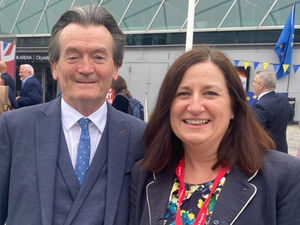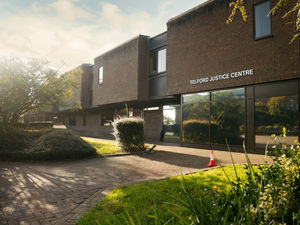Compulsory purchase plan on access to Shrewsbury Flaxmill car park
Attempts to find the owner of a plot of land which is vital to the future of Shrewsbury's Flaxmill Maltings have failed - leaving Shropshire Council to consider making a compulsory purchase order on the site which will be used to access the car park.
Permission for the 98-space car park has been obtained but there is currently no way to access it.
A compulsory purchase order can be used by certain bodies in the UK to obtain land or property without the consent of the owner.
The site has not been registered with the Land Registry, meaning attempts to trace the ownership have been futile.
Chairman of the Friends of the Flaxmill Maltings, Alan Mosley, said the move is essential for the future.
"The piece of land will give us access to the car park, so it is a vital component in us being able to deliver car parking for the people who will be employed by companies taking up space in the Flaxmill and for the visitors who are coming to see the wonderful interpretation and learning centre.
Critical component
"Permission is already in place for everything else, including the car park, so it is essential this is sorted moving forward."
The council's cabinet will be asked to approve the compulsory purchase at a meeting in Shirehall today.
The land in question forms part of a larger area known by the council and Historic England as the railway triangle, and is situated between land parcels which are within the freehold ownership of Historic England.
A report which will go before councillors said: "The scheme is a critical component of the second stage works, however, in order for the scheme to be delivered, assembly of the order land is an absolute necessity.
"The scheme is a key piece in the jigsaw of the redevelopment project for the Flaxmill. It will secure the optimal and effective use of the whole of the land comprised within the railway triangle and is an essential component in ensuring the successful restoration of the Flaxmill."
It is anticipated that the Flaxmill, once fully restored, will attract about 20,750 visitors a year and provide a commercial workspace for up to 280 people.




